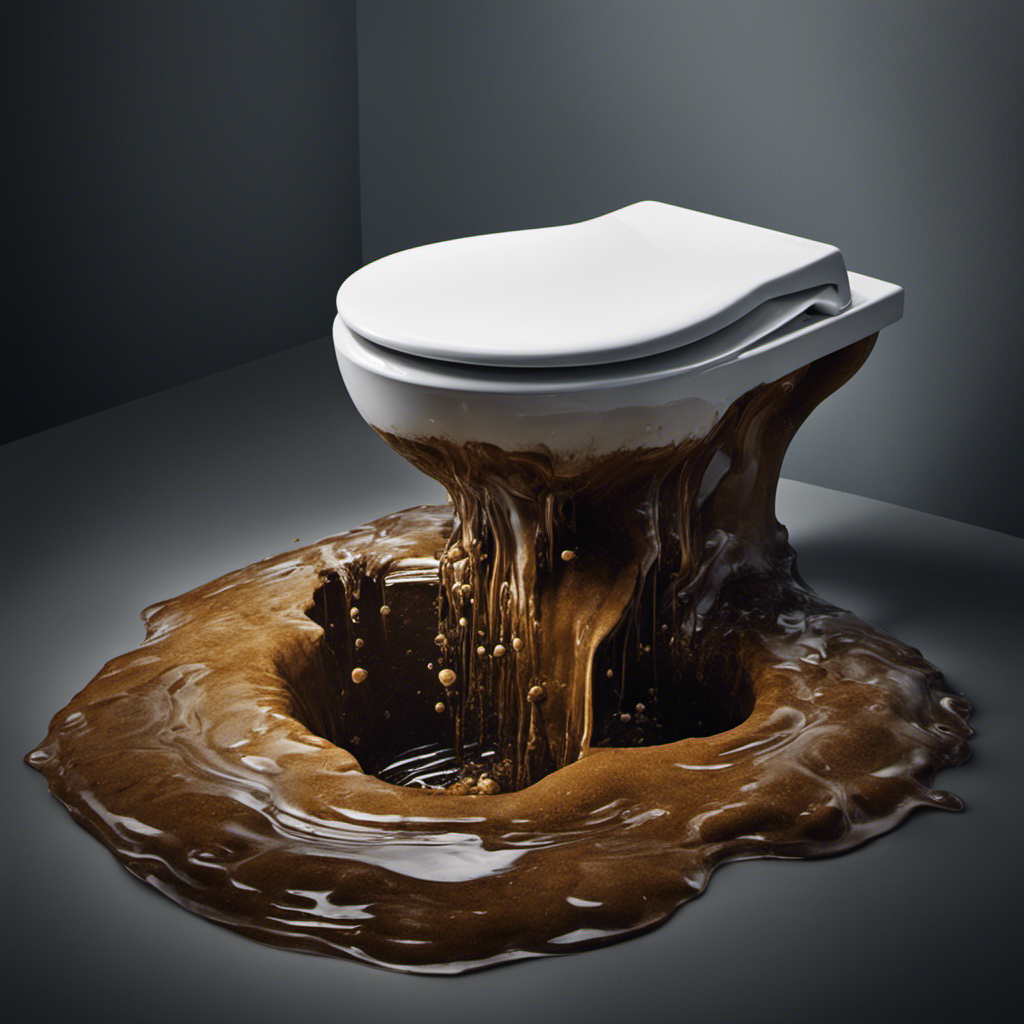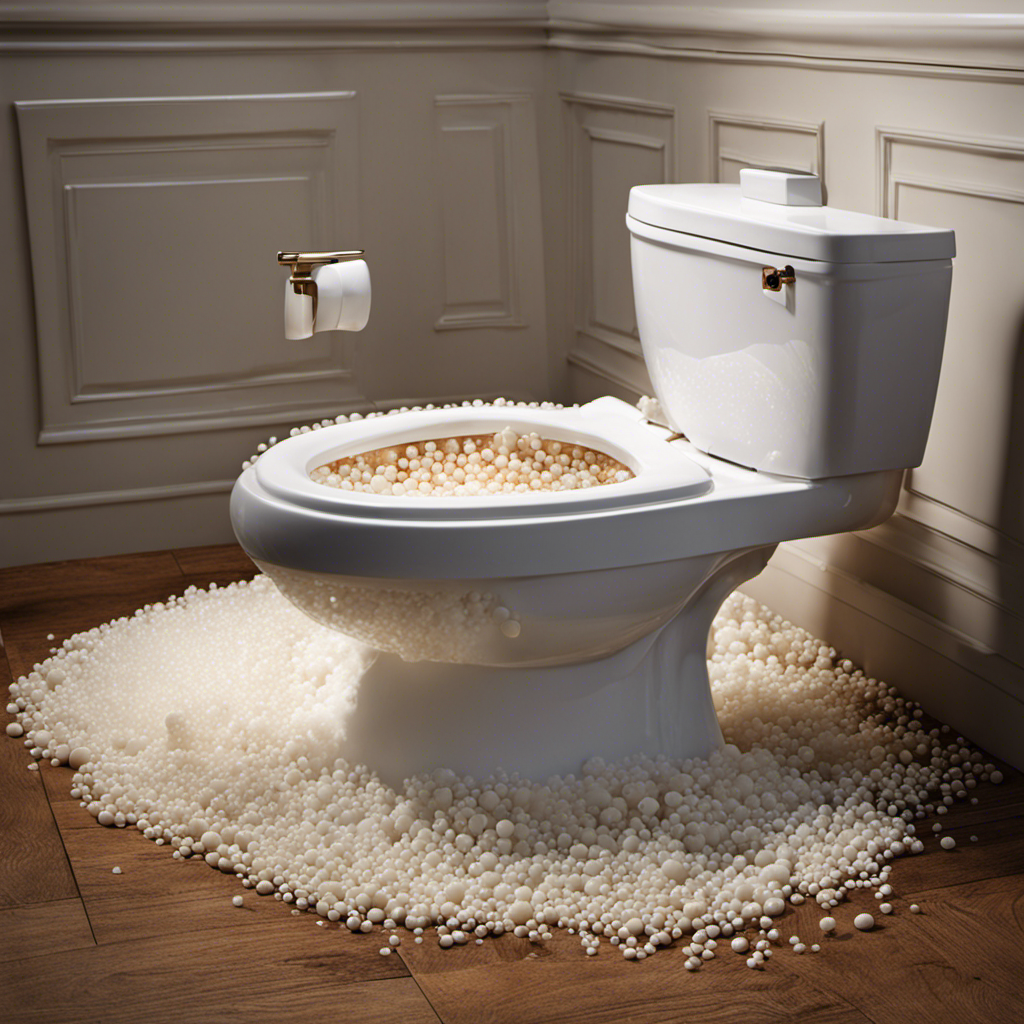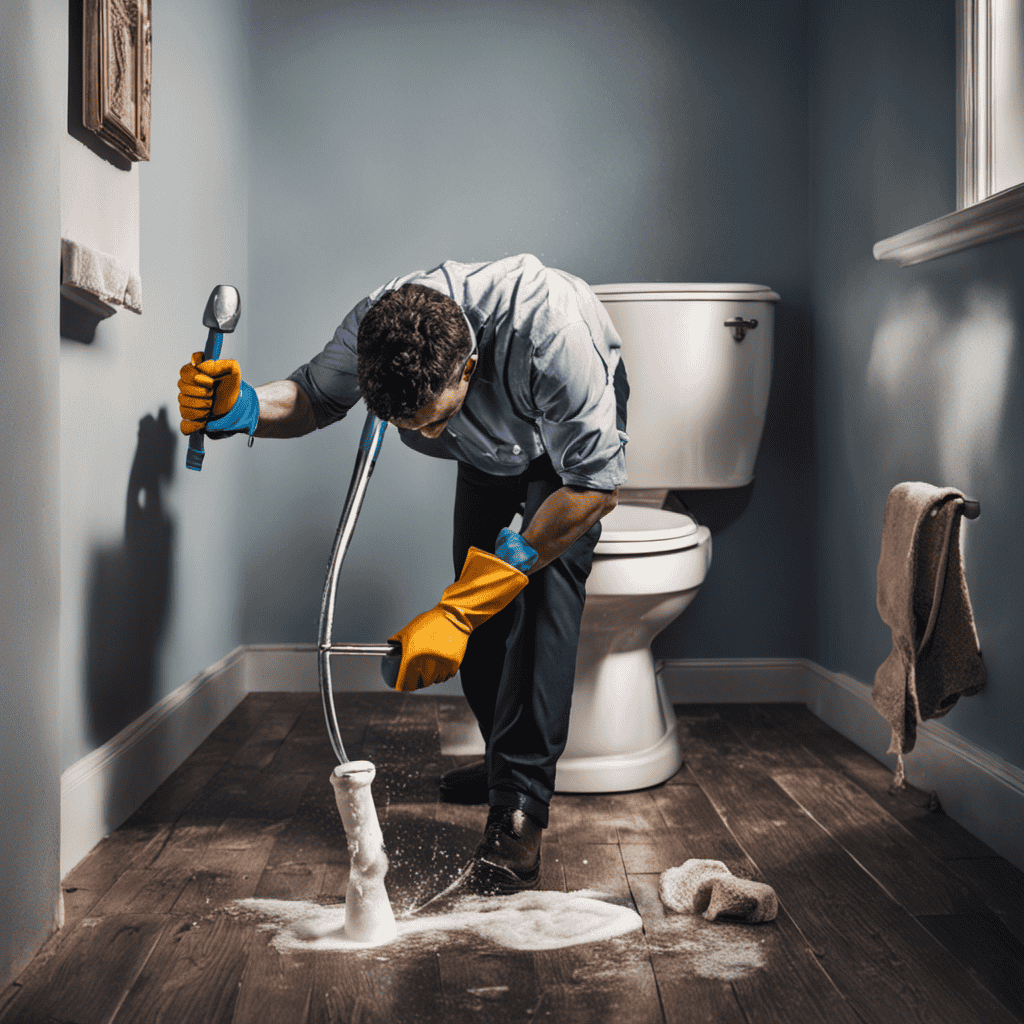Have you ever wondered why your poop is sticking to the toilet?
In this article, I will explore the possible causes of this unpleasant phenomenon. We’ll delve into the role of diet and hydration, as well as the impact of medications on sticky bowel movements.
It’s important to understand when it’s necessary to seek medical attention for this issue.
So, if you’re curious about why your poop is sticking to the toilet, keep reading for answers and insights.
Key Takeaways
- Digestive disorders like IBS, ulcerative colitis, and Crohn’s disease can cause sticky poop.
- Poor diet, lack of fiber, and dehydration can contribute to sticky stools.
- Hydration is important for preventing sticky stool as water helps lubricate the digestive system.
- Some medications can cause constipation and sticky bowel movements, requiring dietary modifications and communication with a healthcare provider.
Possible Causes of Sticky Poop
There are several factors that could be causing your poop to stick to the toilet.
Digestive disorders can contribute to sticky poop. Conditions such as irritable bowel syndrome (IBS), ulcerative colitis, and Crohn’s disease can affect the consistency of your stool, making it more adhesive. These disorders can cause inflammation in the gastrointestinal tract, leading to changes in bowel movements.
Additionally, lifestyle factors can play a role in sticky stools. Poor diet, lack of fiber, and dehydration can all contribute to this issue. It’s important to stay hydrated and consume a balanced diet that includes plenty of fruits, vegetables, and whole grains.
Understanding the role of diet in sticky stools is crucial for finding relief and maintaining a healthy digestive system.
Understanding the Role of Diet in Sticky Stools
To understand why your stool is sticking to the toilet, you should consider the role of your diet and how it may be affecting your digestive system.
One important factor to consider is your fiber intake. Fiber is a crucial component of a healthy diet as it adds bulk to your stool and promotes regular bowel movements. Insufficient fiber intake can lead to stools that are sticky and difficult to pass.
Additionally, certain digestive disorders can also contribute to sticky stools. Conditions such as irritable bowel syndrome (IBS), Crohn’s disease, and ulcerative colitis can affect the consistency of your stool.
It is important to consult with a healthcare professional if you are experiencing persistent sticky stools, as they can help identify any underlying digestive issues and provide appropriate treatment or dietary recommendations.
Hydration and Sticky Stool: What’s the Connection
Make sure you’re drinking enough water throughout the day, as dehydration can contribute to sticky stool.
When we don’t consume enough water, our bodies become dehydrated, and this can have a direct impact on our gut health. Dehydration affects the consistency of our stool, making it stickier and harder to pass. This happens because water helps to lubricate our digestive system, allowing for smooth bowel movements.
Without enough water, the stool can become dry and sticky, leading to discomfort and difficulty during elimination. It’s important to stay hydrated to maintain optimal gut health and prevent sticky stool.
Now, let’s explore the impact of medications on sticky bowel movements.
The Impact of Medications on Sticky Bowel Movements
Remember to take your medications as prescribed, as certain medications can contribute to sticky bowel movements. It is important to understand the impact of medications on digestion and how they can affect your bowel movements. Here are some key points to consider:
-
Medications that can cause constipation: Some medications, such as opioids, antacids with aluminum or calcium, and certain antidepressants, can slow down the movement of stool through the intestines, leading to constipation and sticky stool.
-
Dehydration and medication: Some medications can increase the risk of dehydration, which can further contribute to constipation and sticky stool. It is important to stay well-hydrated and discuss any concerns with your healthcare provider.
-
Dietary changes: Certain medications may require dietary modifications to help alleviate constipation. Increasing fiber intake and staying hydrated can help soften the stool and prevent it from sticking to the toilet.
-
Communication with healthcare provider: If you are experiencing sticky bowel movements as a side effect of medications, it is essential to communicate this with your healthcare provider. They may be able to adjust your medication or provide additional recommendations to manage this issue.
-
Lifestyle modifications: Along with taking medications as prescribed, incorporating regular physical activity, maintaining a healthy diet, and managing stress levels can also help improve digestion and prevent sticky stool.
When to Seek Medical Attention for Sticky Poop
If you notice persistent sticky bowel movements, it is important to seek medical attention to determine the underlying cause and receive appropriate treatment. Sticky poop can be a sign of an underlying digestive issue or a more serious condition. Consulting a doctor is crucial in order to rule out any potential health concerns and to discuss the appropriate treatment options for sticky poop. In some cases, changes in diet and lifestyle may help alleviate the problem. However, if the sticky poop persists or is accompanied by other symptoms such as abdominal pain, blood in the stool, or unexplained weight loss, it is important to consult a doctor right away. They can conduct further tests, such as stool analysis or imaging studies, to determine the cause and recommend the most suitable treatment.
| When to consult a doctor | Treatment options for sticky poop |
|---|---|
| Persistent sticky poop accompanied by other symptoms such as abdominal pain, blood in the stool, or unexplained weight loss | Changes in diet and lifestyle |
| Sticky poop that persists despite dietary changes | Medications to improve digestion |
| Sticky poop in children or elderly individuals | Probiotics to promote healthy gut bacteria |
| Sticky poop with a sudden onset or severe symptoms | Surgical intervention if necessary |
| Any concerns or questions about sticky poop | Regular follow-up with a healthcare provider |
Conclusion
Well, folks, it seems we’ve reached the end of our journey exploring the sticky world of poop. We’ve delved into the possible causes, dissected the role of diet, and pondered the hydration connection.
We even took a glimpse into the impact of medications on those sticky bowel movements. But fear not, dear readers, for if you find your poop sticking to the toilet, rest assured that seeking medical attention is always an option.
So, here’s to a future of smooth and effortless bathroom experiences. Cheers!









